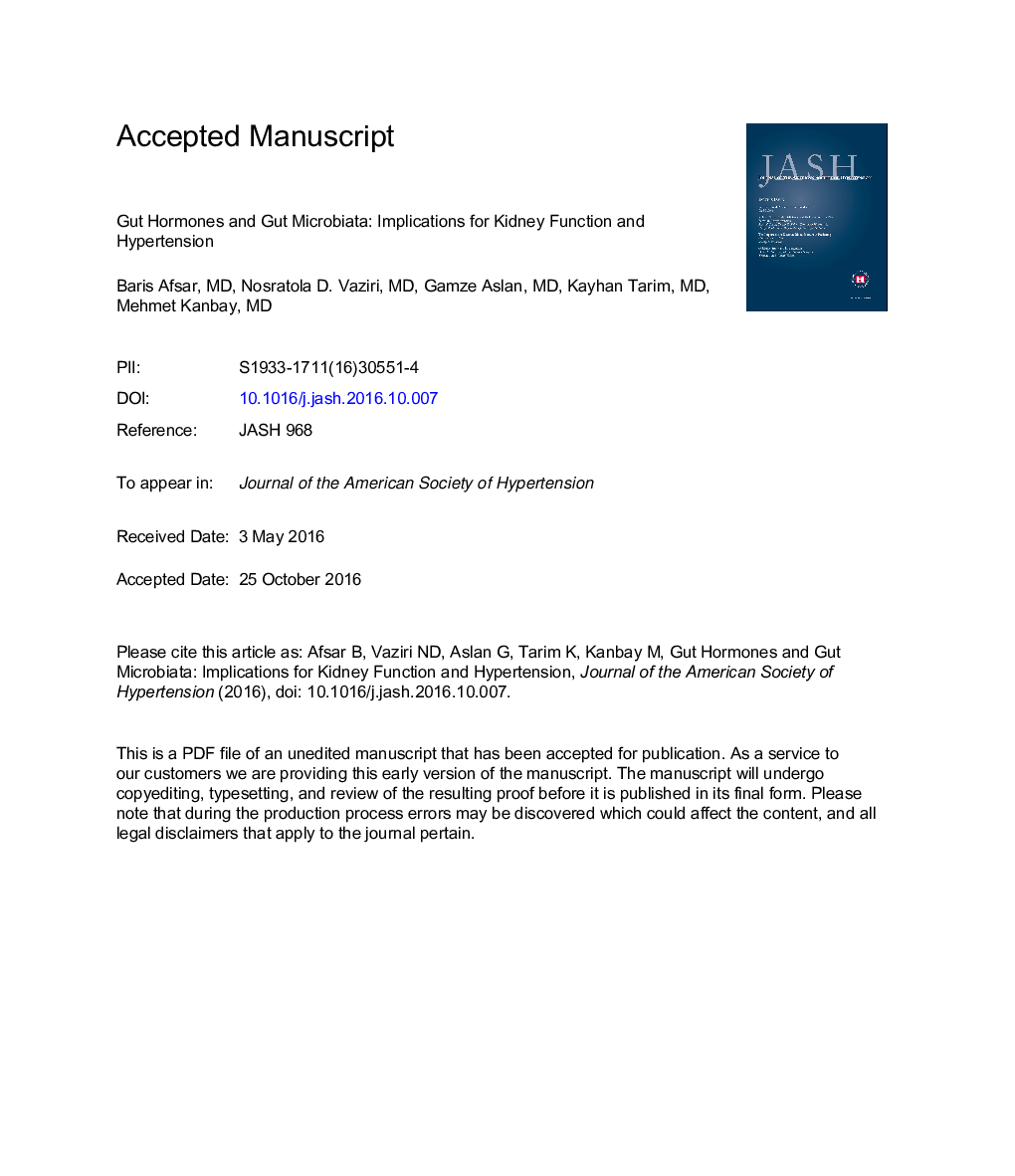| Article ID | Journal | Published Year | Pages | File Type |
|---|---|---|---|---|
| 8667565 | Journal of the American Society of Hypertension | 2016 | 24 Pages |
Abstract
Increased blood pressure (BP) and chronic kidney disease are two leading risk factors for cardiovascular disease. Increased sodium intake is one of the most important risk factors for development of hypertension. Recent data have shown that gut influences kidney function and BP by variety of mechanisms. Various hormones and peptides secreted from gut such as gastrin, glucocorticoids, Glucagon-like peptide-1 impact on kidney function and BP especially influencing sodium absorption from gut. These findings stimulate scientist to find new therapeutic options such as tenapanor for treatment of hypertension by blocking sodium absorption from gut. The gastrointestinal tract is also occupied by a huge community of microbes (microbiome) that under normal condition has a symbiotic relationship with the host. Alterations in the structure and function of the gut microbiota have been shown to play a key role in the pathogenesis and complications of numerous diseases including hypertension. Based on these data, in this review, we provide a summary of the available data on the role of gut and gut microbiota in regulation of BP and kidney function.
Related Topics
Life Sciences
Neuroscience
Endocrine and Autonomic Systems
Authors
Baris MD, Nosratola D. MD, Gamze MD, Kayhan MD, Mehmet MD,
